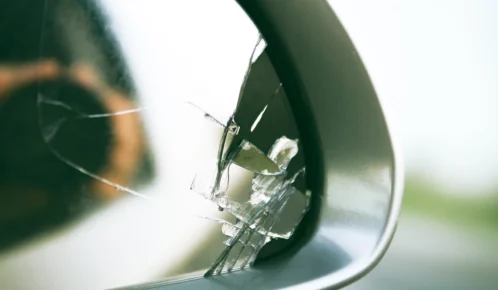Signs of nursing home neglect include sudden changes in behavior, unexplained bruises or wounds, and sedation. Victims of nursing home neglect or abuse may have a legal claim against the facility or people responsible. Families can contact a nursing home negligence lawyer to help them understand their legal options. Victims and their families may be able to settle the claim with the nursing home. In other cases, they may need to file a nursing home neglect lawsuit to try to recover compensation.
Table of Contents
The National Center on Elder Abuse estimates that one in three nursing home residents in the United States suffer from neglect. Illinois investigates nursing homes every 15 months or less, but a study by the U.S. General Accountability Office noted that state investigations regularly miss both actual harm and immediate hazards for nursing home residents. This lack of effective oversight leads experts to believe the incidences of neglect and abuse may be much higher.
Abuse is defined as a deliberate infliction of harm, a deprivation of care, unreasonable confinement, intimidation, or punishment that results in physical or mental pain. Neglect indicates a failure to provide the care and service necessary for freedom from pain. Nursing home neglect may not necessarily be caused by an intentional act, but the presence of a potentially dangerous situation that causes harm or anxiety is against federal guidelines. If a caregiver is taking advantage of the resident’s finances, known as elder financial exploitation, and is also a form of abuse.
Signs of Nursing Home Neglect
Loved ones can identify potential problems by watching for the following:
- Sudden changes in behavior or emotional distress, such as agitation, withdrawal, or depression
- Pressure sores, unexplained injuries, falls, broken bones or infection
- Rapid weight loss or gain or signs of malnutrition or dehydration
- Heavy medication or sedation
Awareness and Involvement Lowers the Risk of Harm
It is common for family members who are not aware of the situation to miss the signs because an elderly resident is the victim of intimidation by the staff or lacks the ability to communicate. The best thing a loved one can do for a nursing home resident is to visit frequently, stay alert, and raise questions at the first indication that something may be wrong. The Administration on Aging advises individuals to report suspicions to the appropriate authorities rather than attempt to verify abuse or neglect.
Common Causes of Nursing Home Neglect
Lack of staff education, staff burnout, or high staff turnover can give rise to negligence. These issues and others often lead to abuse, which includes assault and battery, lack of adequate medical care, food or water deprivation, sexual assault, unreasonable restraint and use of medication unauthorized by a doctor.
Report the Signs of Nursing Home Neglect to Authorities
According to federal nursing home regulations, all nursing home residents have the right to freedom from all types of abuse, punishment, and seclusion. Anyone who suspects that a nursing home resident is in immediate danger should call 911. In Illinois, injury to patients should also be reported through the Illinois Department of Public Health. If your loved one died a suspicious death in a nursing home, report this to the Illinois Department of Public Health and contact a wrongful death attorney.
The Administration on Aging recommends attorney involvement as a way to hold nursing home facilities accountable for harm that occurs to its residents and discourage further abuse. A Chicago injury attorney may be able to assist loved ones who believe a nursing home patient’s rights are violated.
Victims of Nursing Home Abuse and Neglect Can Take Legal Action
The nursing home may deny the claims or refuse to pay compensation to the victim or their family. A nursing home negligence lawyer may help victims and families understand their legal options and, if necessary, file a lawsuit on their behalf. Nursing homes and insurance companies are usually more likely to take your claim seriously if you have a nursing home abuse attorney. This may increase your chance of recovering compensation and holding the nursing home accountable for their actions. Types of personal injury damages that may be available to victims or their families include economic, noneconomic, and, in rare cases, punitive damages.



